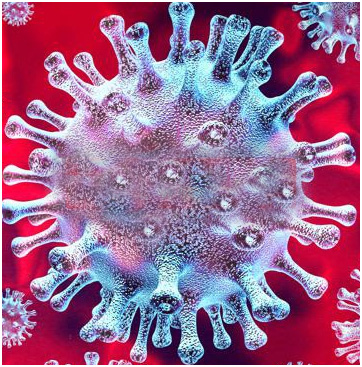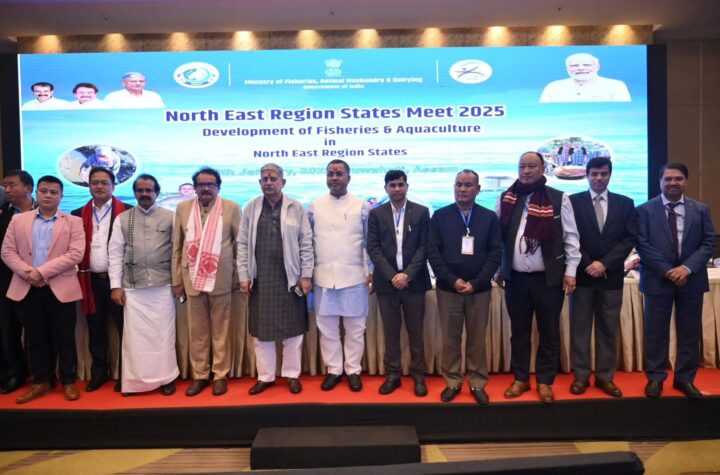New Delhi, Delhi, 5th of January, 2025 : In a momentous step towards advancing healthcare and promoting traditional medicine Prime Minister Shri Narendra Modi laid the foundation stone (virtually) of Central Ayurveda Research Institute in Rohini, and termed it as the “Ayurveda’s – next big leap”. The ceremony was attended by Shri Prataprao Jadhav, Union Minister of State (Independent charge), Ministry of Ayush and other dignitaries.
Emphasising the Government’s focus on making healthcare accessible to the poorest of the poor, the Prime Minister remarked that the Government is also promoting traditional Indian medicine systems like AYUSH and Ayurveda. He added that over the past decade, the AYUSH system has expanded to more than 100 countries. Shri Modi highlighted that the first World Health Organization (WHO) institution related to traditional medicine is being established in India. He added that a few weeks ago, he inaugurated the second phase of the All India Institute of Ayurveda. Shri Modi remarked that today, the foundation stone for the Central Ayurveda Research Institute has been laid and extended his special congratulations to the people of Delhi for this achievement.
“India has immense potential to become the world’s health and wellness capital”, stressed the Prime Minister. He remarked that the day is not far when, along with “Make in India,” the world will also adopt “Heal in India” as a mantra. He added that to facilitate foreign citizens in availing AYUSH treatments in India, a special AYUSH visa facility has been introduced and in a short span, hundreds of foreign nationals have benefited from this facility.
Speaking at the event, Shri Prataprao Jadhav, Union Minister of State (Independent charge), Ministry of Ayush, expressed his gratitude to the Prime Minister for his leadership, stating, “This facility will drive forward research and quality healthcare, making a lasting impact on millions of lives across the country.”

In a connected event at Central Ayurveda Research Institute in Rohini, Shri Yogender Chandolia, Member of Parliament, North West Delhi; Vaidya Rajesh Kotecha, Secretary, Ministry of Ayush, along with officials from Ministry of Ayush & CCRAS joined the occasion.
Shri Yogender Chandolia, Member of Parliament from North West Delhi, today graced the occasion of Bhoomi Pujan of the New Building of CARI, New Delhi at Rohini Sector 28, Delhi. He emphasized the significance of two major developments – the inauguration of the new Metro line and the laying of the foundation stone for the new CCRAS-CARI building. Addressing the gathering he said that both the milestones are a “gift” from the government to the people of Delhi, underscoring the long-term benefits of the new Central Ayurveda Research Institute to the city’s residents. He also expressed his gratitude towards Vaidya Rajesh Kotecha, Secretary Ayush, Dr. Acharya, DG CCRAS Dr. Bharti, Director Institute and their entire team for their continued efforts in advancing Ayurvedic research and healthcare.
Vaidya Rajesh Kotecha, Secretary, Ministry of Ayush, while highlighting the significance of the new building stated that acquiring a dedicated space in Rohini after 46 years is a monumental achievement, setting a benchmark for future endeavors. He said “this futuristic building is poised to provide high-quality services to society, enhancing awareness and accessibility of traditional medicine.” Secretary Ayush remarked, that we are privileged to be a part of this event, marking a new chapter in our journey towards elevating Ayurvedic research and healthcare to unprecedented heights.”
The new facility, spanning 2.92 acres with an investment of ₹187 crore, will feature a 100-bed research hospital dedicated to advancing Ayurveda research and providing healthcare services to the community.
About the Institute:
The Central Ayurveda Research Institute, established in 1979, has been a pioneer in clinical research in Ayurveda, particularly focusing on Preventive Cardiology and Non-Communicable Diseases (NCDs). The institute has operated from rented premises in Punjabi Bagh, New Delhi, for many years. However, the government has now taken a giant leap forward by providing CARI with a state-of-the-art facility of its own. This new 2.92-acre campus will become a hub for cutting-edge research, treatment, and skill development, with an investment of Rs. 187.15 crore. The project is set to be completed within 30 months, further strengthening India’s leadership in traditional medicine.
The new facility will feature four main blocks: the Administrative Block, Outpatient Department (OPD) Block, Inpatient Department (IPD) Block, and a dedicated Treatment Block, ensuring a seamless and comprehensive healthcare experience. The institute will offer specialized clinics in geriatrics, pediatrics, ear-nose-throat (ENT), arthritis, preventive cardiology, and eye care, alongside traditional treatments like Panchakarma, Kshara sutra (क्षार सूत्र – medicated thread therapy), and Jalukavacharana (जलौकावचारण – leech therapy), combined with modern diagnostic and therapeutic technologies.This advanced infrastructure is expected to revolutionize research and patient care in Ayurveda, positioning CARI as a global leader in the integration of traditional and modern healthcare practices. The institute will also house cutting-edge clinical laboratories, physiotherapy units, and a well-equipped library to support its research and educational activities.
CARI’s dedication to quality is demonstrated through its prestigious National Accreditation Board for Hospitals (NABH) and National Accreditation Board for Testing and Calibration Laboratories (NABL) accreditations. The institute’s Panchakarma Technician Training Course, affiliated with the Healthcare Sector Skill Council of India, aims to empower youth with valuable skills in Ayurveda, contributing to the sector’s growth and capacity-building.










More Stories
ICMR Detects Two Cases Of Human Metapneumovirus (HMPV) In Karnataka Through Routine Surveillance.
North East Region Meet 2025 On Development Of Fisheries Sector In The Northeast Held In Guwahati.
IIT Madras To Collaborate With Union Agriculture Ministry On Project VISTAAR.